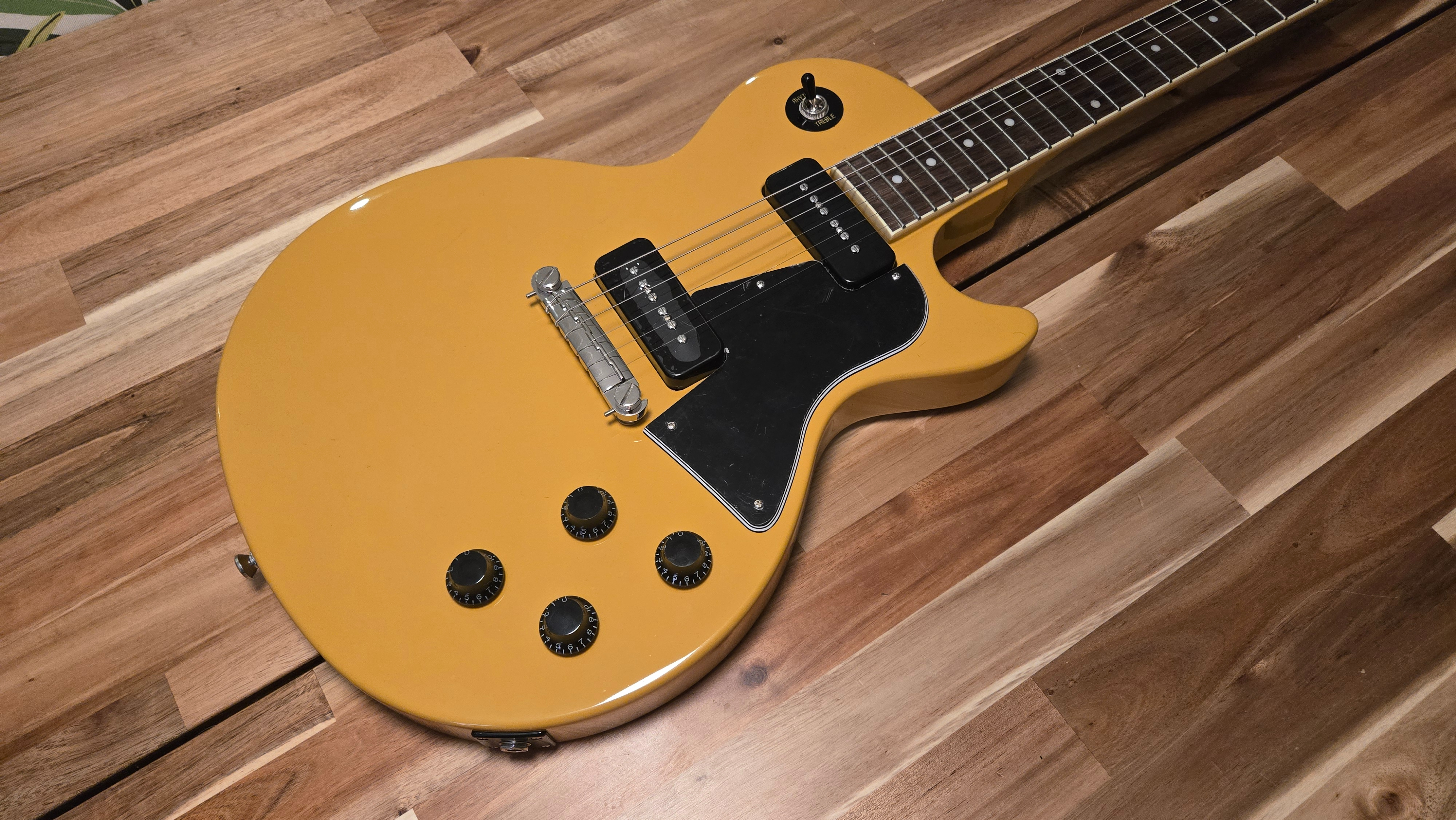
Sometimes, in your playing career, you may come to reevaluate certain guitars you overlooked the first time around. For me, the Epiphone Les Paul Special is one such guitar. I often thought of the LP Special as just the cheaper, less desirable version of the Les Paul Standard or, better still, the Custom. However, having had one on loan for a little while, I now feel a bit foolish for sleeping on it for so long.
First things first though, what are we looking at here? The Epiphone Les Paul Special is, at its heart, a budget-friendly rocker that’ll deliver all the vintage-flavored sounds you could hope for without pushing north of the $500 mark. It differs from a Standard in many ways, some of them coming down to aesthetics, but the primary difference is in the form of the two P90 pickups it has in place of the Standard’s humbuckers. P90s are, essentially, fattened single coils. In their more common shape, single coils would look frankly wrong on a Les Paul, but as the heftier P90 style it works, giving a tonal depth and warmth that a regular single coil can’t. For clean and mildly overdriven sounds, P90s offer a level of clarity and chime which is hard to beat.
Across the spec sheet, though, you’ll find plenty of similarities to more common Les Paul styles, from the classic mahogany body, albeit without the typical maple top and a mahogany neck, to the way the weight is neatly distributed towards the bottom of the body when you play standing up.
Despite its differences, this is still a Les Paul, and there are certain things you expect when picking one up. Does it deliver though? Let’s find out.
Build quality
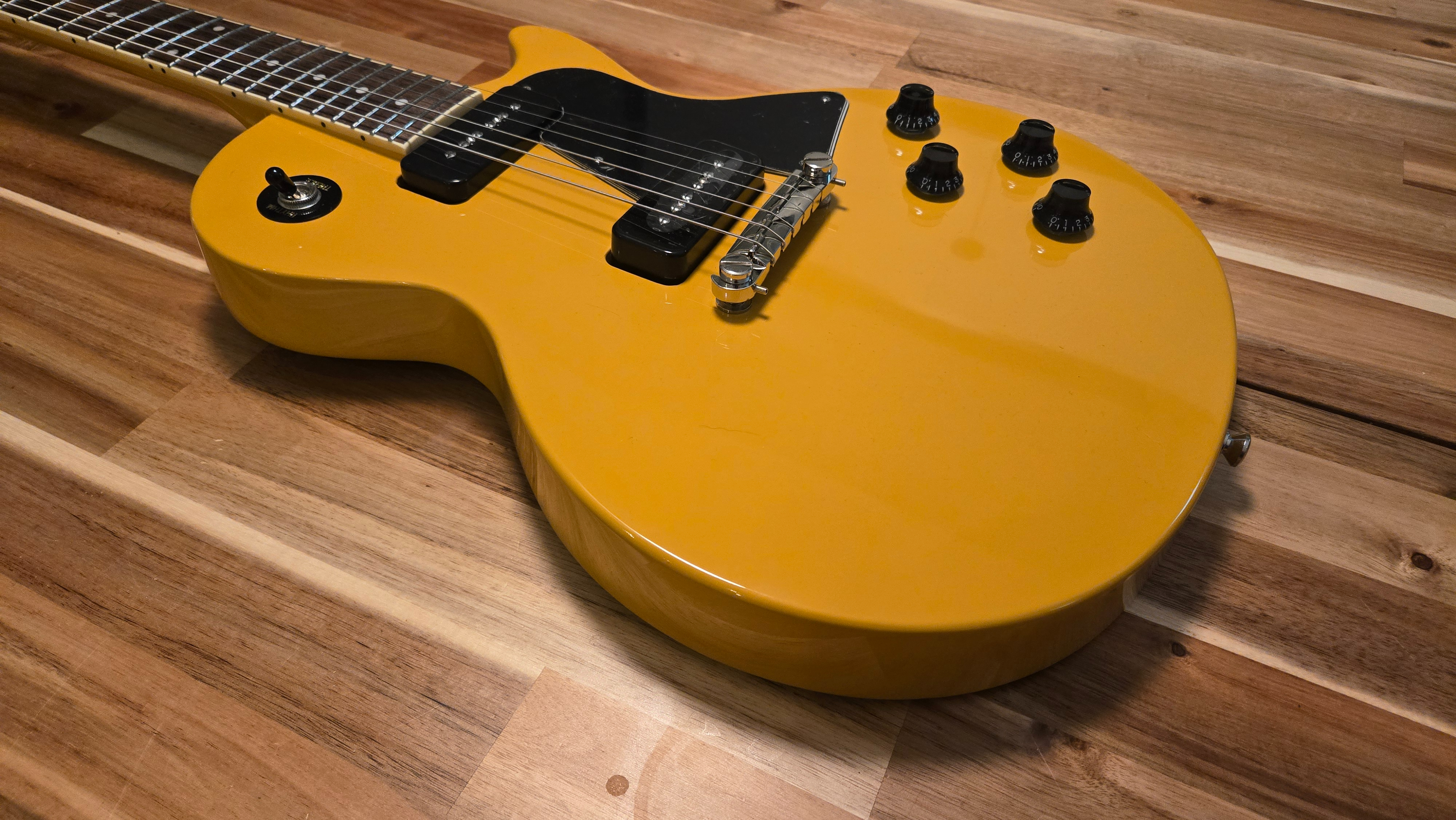
Straight out of the box, the Special impressed me with its build quality and attention to detail, especially considering its price point. There were no wobbly pots, or scratchy frets, on the review model. The guitar sports a solid mahogany body with plenty of heft, which gives it a substantial feel and definitely contributes to its rich tone.
The finish - the review model came in the glorious TV yellow colorway - although quite thick, is well-applied and reminiscent of higher-end models, comparable to those found on Mexican-made Fenders, for example. The neck is also mahogany, providing durability and a comfortable grip, with an Indian laurel fretboard that I found smooth and easy to navigate.
Playability

In terms of playability, you’ll feel instantly at home with Les Paul Special if you’re used to other models from the Epi stable. The 12" radius fretboard and medium jumbo frets facilitate easy bending and fast play, making it suitable for various playing styles. The neck profile felt chunkier than I remembered, not quite in baseball bat territory but not far off.
Some players may find it more comfortable, particularly for rhythm playing; however, if you’re used to the wafer-thin necks found on Ibanez or ESP guitars, then you might need to reacclimatise.
Now, while it may not be a shredder’s dream, it excels in providing a smooth and responsive playing surface, especially after a professional setup. The button tuners look great and I had no concerns over their reliability further down the line, which is a significant improvement over earlier Epiphone models.
Tone
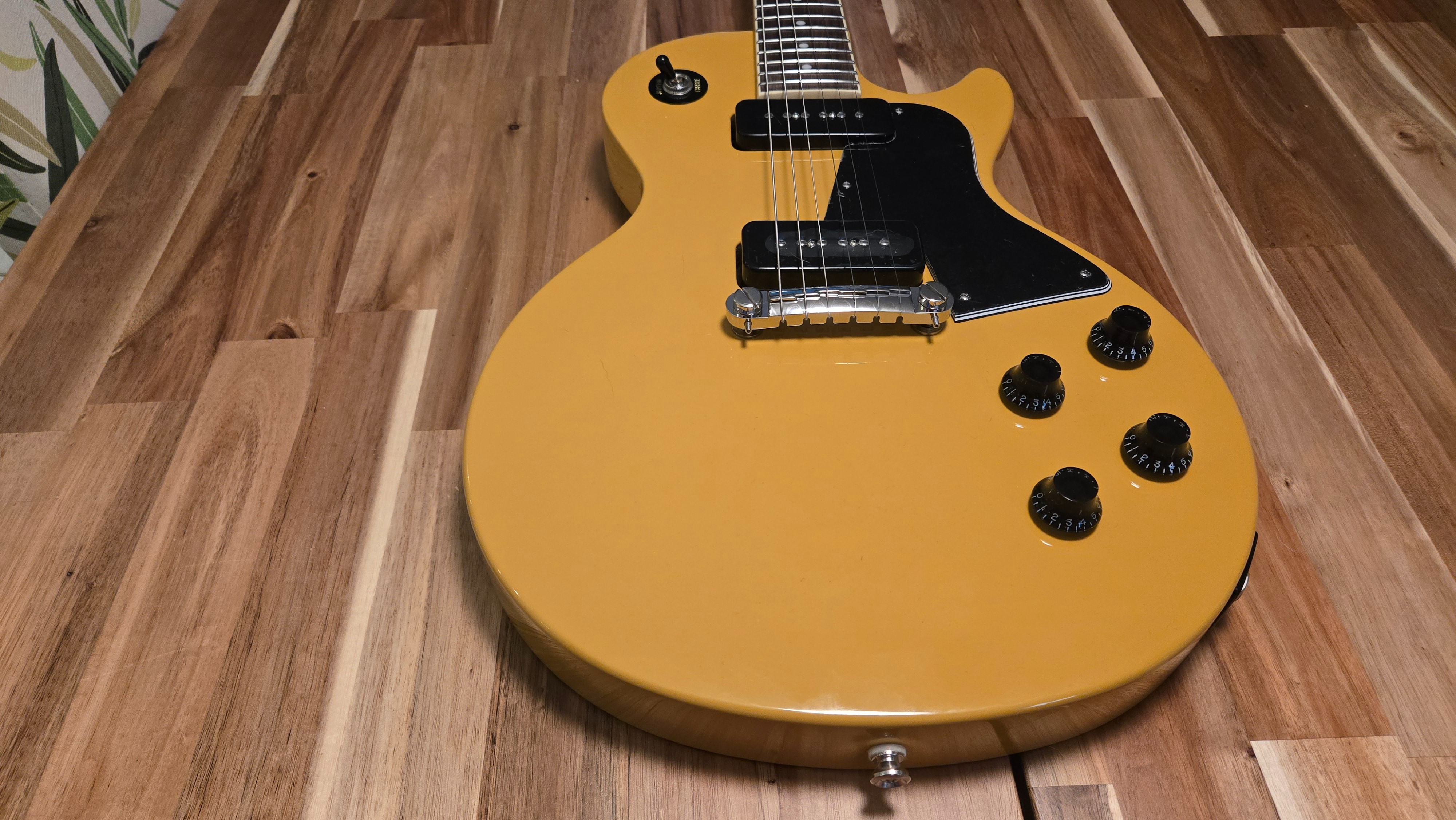
The P-90 pickups were the highlight of this guitar for me, delivering a wide range of tones that were both versatile and characterful. The neck pickup provides a warm, jazzy sound perfect for clean tones and smooth leads. In contrast, the bridge pickup is raw and biting, ideal for cutting through mixes with a bright, aggressive tone. Pair it with a Tube Screamer or other mild overdrive and the results are simply spectacular.
When used in unison, the pickups produce a bright and chimey sound, reminiscent of a fat Telecaster, making this guitar particularly suited for rock, blues, and even punk genres. The tone controls are responsive, which was ideal for rolling off the volume to clean up a dirty sound.
Value for Money
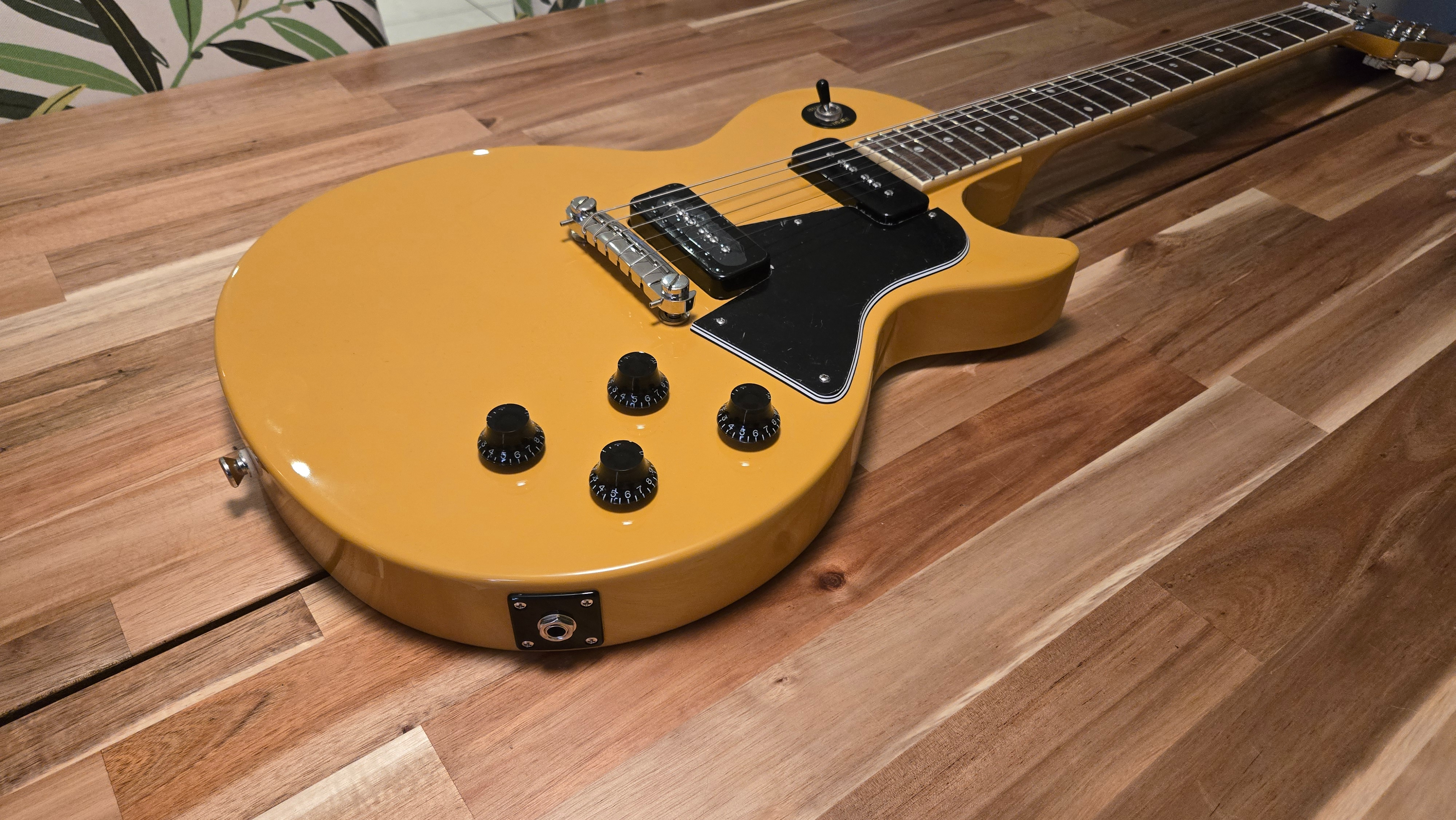
Given its price point, the Epiphone Les Paul Special offers excellent value for money. It provides many features typically found on more expensive models, including quality pickups, a sturdy build, and a vintage-inspired design. To my mind, it is particularly appealing for intermediate players looking to upgrade from entry-level instruments without breaking the bank.
Compared to the Epiphone Les Paul Standard, for example, the Special offers a more stripped-down, raw aesthetic and tone, which some players might prefer for its simplicity and directness.
The Standard, on the other hand, offers more features such as a carved maple top and humbucking pickups, which cater to a different sonic preference and playing style - and does add a couple of hundred dollars extra on top of the cost of the Special. You pay your money and you take your choice, but neither model will leave anyone feeling shortchanged, which hasn't always been the case here.
Conclusion
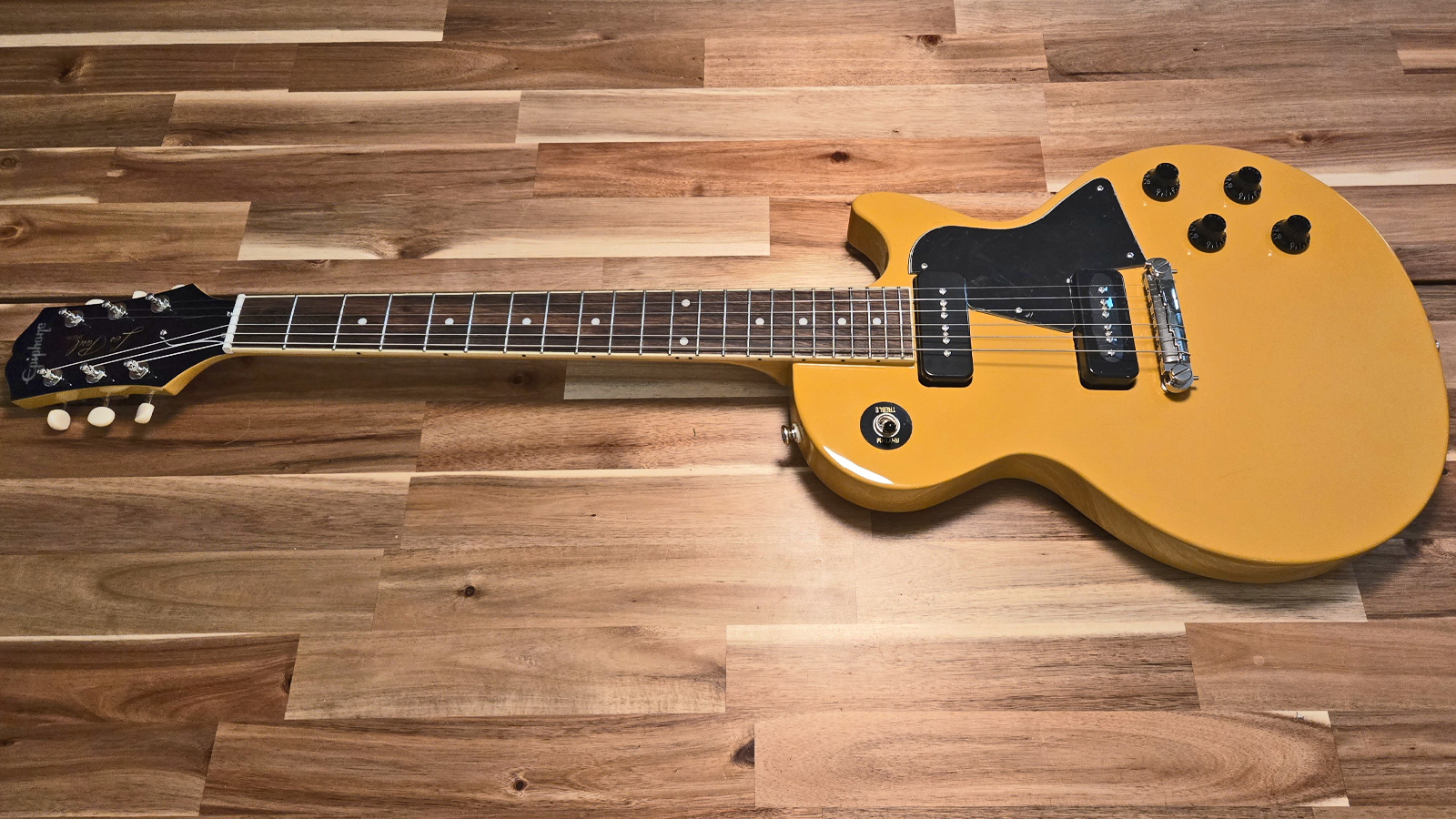
We’ve given high praise to Squier, for giving its build quality and price-to-performance ratio a push in the right direction. Like Squier, modern Epiphones are a world apart from what they used to be.
The 2024 Epiphone Les Paul Special is a perfect example, delivering a well-crafted, versatile guitar that excels in both tone and playability. Its P-90 pickups offer a distinctive sound that can handle a variety of genres, making it a great option for rock and blues players in particular.
Overall, this guitar is a solid choice for those seeking vintage style and sound without the vintage price tag, and I only wish I’d had one over sooner. It’s special, alright.
Specifications
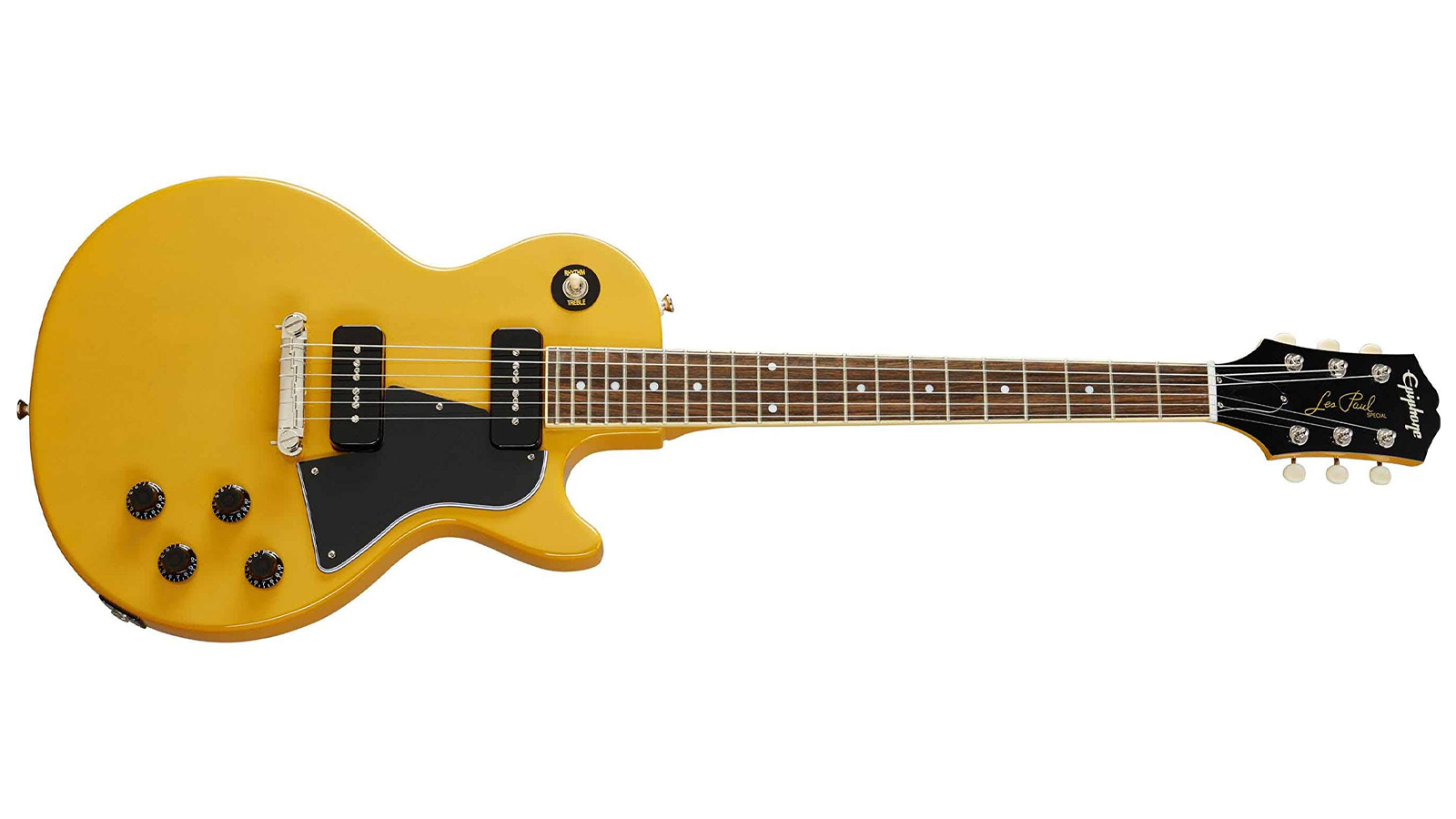
- Body Wood: Mahogany
- Neck Wood: Mahogany
- Fingerboard: Laurel
- Number of Frets: 22
- Scale Length: 24.75
- Controls: 2 x volume, 2 x tone
- Pickups: P90 Pro soapbar x 2
- Contact: Epiphone







